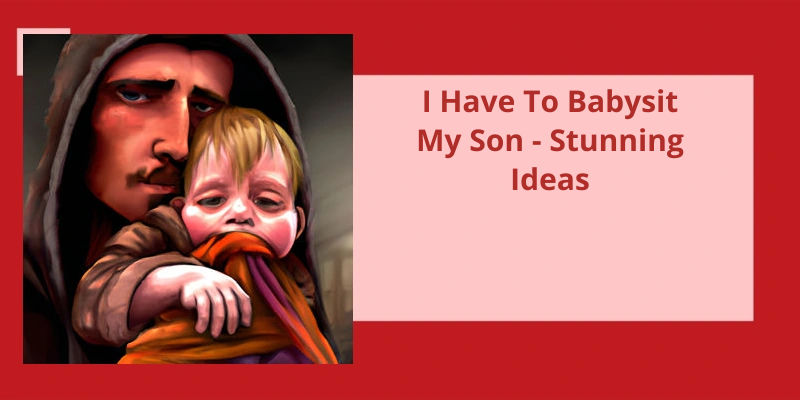As human beings, we crave connection and social interaction. Whether it's spending time with loved ones, forming new friendships, or simply having casual conversations with strangers, it's important to have meaningful relationships in our lives. One way to foster these connections is by suggesting a meetup with someone. This could mean grabbing coffee, going for a walk, attending an event, or any other activity that allows for face-to-face interaction. While digital communication has certainly made staying in touch easier, there's no substitute for in-person interactions. So, if you're feeling lonely or simply want to expand your social circle, consider reaching out to someone and asking if they'd like to meet up sometime. You never know what kind of rewarding experiences and relationships may come from it.
How Do You Say We Can Meet Sometime?
When we say “we can meet sometime,” it usually means that both parties have expressed interest in meeting up, but the timing isnt set in stone. This phrase is often used when the schedules of the people involved are uncertain or they want to leave some room for flexibility. It’s a way of keeping the conversation open without feeling like either party is being too pushy.
By using the word “sometime,” we’re acknowledging that there are competing priorities in our lives that may prevent us from meeting right away. It could be work, family obligations, or other commitments that are taking up a lot of our time. This phrase recognizes that we’re all busy and that meeting up may not be feasible in the immediate future. However, it still leaves the door open for a potential meeting in the future.
Another interpretation of the phrase “we can meet sometime” is that it acknowledges the uncertainty and unpredictability of life. We never know whats going to happen tomorrow, next week, or next year. By using this phrase, we’re acknowledging that plans may change, and thats okay. We aren’t making any rigid commitments, and we’re allowing for flexibility in our future interactions.
This phrase allows for flexibility, acknowledges competing priorities, and recognizes the uncertainty of life. It’s an open-ended invitation that leaves room for further discussion and negotiation.
Alternative Phrases to Use Instead of “We Can Meet Sometime”
Here are some alternative phrases that you can use instead of “we can meet sometime”:
1. Let’s schedule a time to meet.
2. How about we get together soon?
3. I’d love to catch up with you. When are you available?
4. Can we set a meeting date?
5. Let’s plan to meet at your convenience.
6. When is a good time for us to get together?
7. I’d like to arrange a time to meet and chat.
8. Are you free to meet up sometime this week?
“later on” or “go” vs. “go ahead.” Similarly, Meetup was chosen as the platform’s name to convey a sense of community and informality. In this article, we’ll explore the origins of Meetup and why it’s become such a popular platform for bringing people together in real life. So, let’s dive in!
Why Do We Say Meetup?
“later on” or “help” vs. “help out.”. The addition of that extra word adds a sense of informality and familiarity to the phrase.
When it comes to the word “Meetup,” it brings together both the formality of “meet” and the casualness of “meet up.”. It’s a combination that’s resonated with people from all walks of life. The word has become synonymous with getting together with friends, colleagues, or even strangers who share a common interest.
By attending Meetups, people can learn about different cultures, hobbies, and interests. It’s an opportunity to step outside your comfort zone and experience something new.
It taps into our need for community and connection, while also offering opportunities for growth and new experiences. So whether youre looking to make new friends or try something new, Meetup is the perfect place to start.
The Impact of Meetups on Local Communities and Their Role in Promoting Social Interactions
Meetups are organized group gatherings that play a significant role in promoting social interactions within local communities. They allow people with similar interests or hobbies to come together, exchange ideas, and form new connections. The impact of Meetups on local communities can’t be overstated. They create a sense of community and belonging, increase social capital, and foster personal growth. Meetups bring together diverse groups of people, including those who’re new to a city or have limited social networks, and help them develop meaningful relationships. By enabling people to connect offline, Meetups can counterbalance the isolating effects of technology and contribute to the mental health and overall well-being of local communities.
Now that we know how to say “let’s meet” in English, it’s important to understand the different ways this phrase can be used in various social situations. From business meetings to casual hangouts, the way you say “let’s meet” can convey different levels of formality and urgency. So whether you’re scheduling a coffee chat with a colleague or making plans for a night out with friends, knowing the nuances of how to say “let’s meet” can help ensure that everyone is on the same page.
How Do You Say Let’s Meet?
In other languages, however, the way to suggest a meet-up with someone can vary greatly. For example, in Spanish, one might say “Vamos a encontrarnos” which directly translates to “Lets go meet.”. French speakers could say “Rencontrons-nous” which also translates to “Lets meet.”
In Japanese, for instance, it’s common to use the phrase “yoroshiku onegaishimasu” which can roughly translate to “Please take care of me.”. This phrase is used as a polite way to suggest a meeting or request assistance. In German, the formal way to suggest a meet-up is to say “Können wir uns treffen?” which means “Can we meet?”
There are also some cultural differences reflected in the way people suggest a meeting. In some Arab cultures, it’s common to suggest a meeting with an invitation to share tea or coffee. The invitation itself is seen as a sign of respect and hospitality. Similarly, in some Latin American cultures, suggesting a meeting at a restaurant or cafe is seen as a form of socializing and bonding.
Interestingly, there are also differences within the English language based on region or culture. For example, in some parts of the United States, people might suggest getting together by saying “Lets grab a drink.”. In other parts, however, this phrase might be interpreted as an invitation for alcohol consumption rather than socializing. Alternatively, some might say “Lets hang out” which is a more casual way to suggest getting together with someone.
Some cultures prioritize politeness and formal language while others emphasize hospitality and casual socializing. Within the English language itself, there are multiple phrases and expressions used to suggest a meeting depending on location and context. Understanding these nuances is important for effective communication and cultural sensitivity.
How to Suggest a Meet-Up in Languages That Use Honorifics or Formal Speech (Such as Korean or Russian)
When suggesting a meet-up in languages that use honorifics or formal speech, it’s important to use the appropriate level of politeness according to the relationship between the speakers. In Korean or Russian, for example, using honorific titles such as “nim,” “ssi,” or “ush” can show respect and create a friendly atmosphere. Additionally, using polite language expressions and avoiding colloquial language can also help convey a formal tone.
The act of meeting up with someone can hold varying degrees of urgency and intention. It could be a casual hangout, a planned business meeting, or a long-awaited reunion with a friend. Whatever the context, meeting up is an opportunity to connect with others and nurture relationships. But what does it truly mean to “meet up soon”? Let’s explore this a little further.
What Does It Mean to Meet Up Soon?
When someone says they’ll meet up with you soon, it typically means that they plan to come together with you at a designated time and place. This can be for a variety of reasons, such as catching up with an old friend or colleague, collaborating on a project, or simply enjoying each others company. The phrase “meet up” implies a sense of informality and intimacy, as it suggests a relaxed gathering between people who know each other well.
It can be used loosely as a way of expressing a desire to see someone without necessarily committing to a specific time or place. This can be a way of keeping the conversation open and allowing for flexibility in scheduling. However, if someone says they’ll meet up with you soon and then fails to follow through, it can be a sign of flakiness or disinterest.
The Etiquette of Confirming a “Meet Up Soon” Plan
When confirming a “meet up soon” plan, it’s important to follow proper etiquette to show respect for the other person’s time and communicate effectively. Be clear and concise in your message, confirm the date, time, and location, and express your excitement about meeting up. Make sure to respond promptly and be flexible if needed to ensure a successful meet up.
Source: What’s meant by ‘We will meet shortly’? Will we meet soon …
As we navigate the virtual world of remote work and social distancing, sometimes it’s just necessary to meet up with someone in person. But how do you go about asking someone to meet up without coming across as pushy or making them uncomfortable? Here’s a polite approach that you can use.
How Do You Politely Ask Someone to Meet Up?
When it comes to asking someone out for a meeting, it’s important to be polite and respectful. People have busy schedules and may not always have the time or desire to meet up. Therefore, it’s important to phrase your request in a way that conveys your interest in meeting them while also being considerate of their time.
Let them know how much you appreciate their expertise and that you’d love to learn more from them. This approach can help to break the ice and make them feel more inclined to meet with you.
Another approach is to be specific in your request. Instead of simply asking to meet up, suggest a particular time and place. For example, you could say “I’d love to meet for coffee next Wednesday at the local coffee shop. Does that work for you?”. This shows that you’ve put some thought into the request and are serious about meeting up.
It’s also important to respect the other persons schedule and availability. When making the request, be sure to offer some flexibility in terms of timing and location. If they’re unable to meet during the suggested time, ask if there’s another time that would work better for them.
Dont beat around the bush or use vague language that could confuse the other person. State your request plainly and be upfront about your intentions. This won’t only save time but also help to build trust and respect between you and the other person.
Finally, it’s important to express your enthusiasm for meeting them. Let them know that you’re excited to have the opportunity to speak with them in person and that you value their time and expertise. This positive attitude can help to build a stronger connection and increase the chances of a successful meeting.
How to Prepare for a Meeting With Someone You’ve Never Met Before
- Research the person before the meeting.
- Prepare a list of topics to discuss.
- Practice introducing yourself and your organization.
- Pick an appropriate meeting location.
- Dress professionally.
- Bring business cards and any relevant materials to share.
- Arrive early to the meeting.
- Be open-minded and ask questions.
- Follow up after the meeting with an email or phone call to show you appreciated their time.
Conclusion
In conclusion, meeting up with someone can be a great way to establish connections and build meaningful relationships. It provides the perfect opportunity to get to know someone better and understand their perspective on various topics. Whether it’s for a casual meetup or a planned date, meeting up with someone can be a valuable experience that can enrich both parties involved. So, don’t hesitate to reach out to someone you want to meet up with, as it could lead to new memories and unique opportunities.






